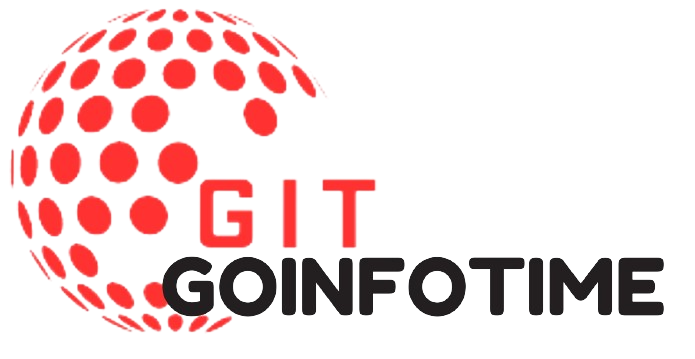Introduction
A Business Administration & Control Specialist is a professional who plays a vital role in managing the financial and administrative aspects of an organization. They ensure that business operations run smoothly, efficiently, and in accordance with established policies and standards. These specialists are responsible for overseeing budgets, analyzing financial data, controlling costs, and ensuring compliance with regulations.
This article provides an in-depth understanding of the role of a Business Administration & Control Specialist, including their responsibilities, required skills, qualifications, and career opportunities.
What Does a Business Administration & Control Specialist Do?
A Business Administration & Control Specialist is responsible for various tasks related to the management of an organization’s resources. Some of the primary duties include:
1. Financial Control and Budget Management
A key responsibility of a Business Administration & Control Specialist is to ensure proper management of the company’s budget. They monitor and control expenses, ensuring that the organization remains within its financial limits. They also prepare and track budgets, ensuring that the financial goals are achieved.
2. Cost Management and Analysis
Business Administration & Control Specialists analyze costs associated with business operations. They identify areas where the company can reduce expenses and improve financial performance. They work closely with department heads to understand the financial needs of each department and suggest improvements.
3. Data Analysis and Reporting
A critical aspect of the role is analyzing financial data to help the organization make informed decisions. Business Administration & Control Specialists collect, review, and interpret financial reports to identify trends, risks, and opportunities for improvement. They create reports for senior management to assist in strategic planning.
4. Compliance and Risk Management
Business Administration & Control Specialists are responsible for ensuring that the organization complies with laws and regulations related to finance and business operations. They monitor and assess financial risks and implement measures to mitigate them.
5. Internal Controls and Audit Support
They establish and maintain internal controls to safeguard company assets. They also collaborate with internal and external auditors to ensure that financial records are accurate and compliant with industry standards and regulations.
Skills Required for a Business Administration & Control Specialist
To excel as a Business Administration & Control Specialist, there are several key skills that professionals in this field must possess:
1. Analytical Skills
The ability to analyze financial data and interpret it accurately is crucial. A Business Administration & Control Specialist must be able to identify trends, make forecasts, and propose solutions based on data analysis.
2. Attention to Detail
A high level of accuracy is necessary when handling financial data. Even small mistakes can lead to significant financial consequences, so attention to detail is essential.
3. Problem-Solving Skills
Business Administration & Control Specialists often encounter challenges related to budget management, cost control, and financial performance. They must be able to think critically and propose solutions that align with the organization’s goals.
4. Communication Skills
These professionals must communicate complex financial data to non-financial stakeholders. Strong communication skills are necessary for explaining financial reports, making presentations, and advising other departments on financial matters.
5. Time Management
Managing multiple tasks and deadlines is a regular part of the role. Business Administration & Control Specialists must be able to prioritize tasks and work efficiently under pressure.
6. Knowledge of Financial Software
Proficiency in financial management software and tools is essential. Familiarity with programs like Microsoft Excel, SAP, or Oracle helps specialists perform their tasks more effectively.
Qualifications Needed for a Business Administration & Control Specialist
A Business Administration & Control Specialist typically requires a combination of education and experience. Here are the qualifications commonly sought by employers:
1. Educational Background
A bachelor’s degree in business administration, finance, accounting, or a related field is generally required. Some employers may also prefer candidates with a master’s degree in business administration (MBA) or finance.
2. Certifications
Certifications in accounting or financial management can give candidates an edge in the job market. Examples include:
- Certified Management Accountant (CMA)
- Certified Public Accountant (CPA)
- Chartered Financial Analyst (CFA)
3. Work Experience
Most positions require several years of experience in business administration, finance, or accounting. Prior experience in roles such as financial analyst or accounting assistant is often a prerequisite.
4. Continuing Education
Since financial regulations and business practices can change over time, a Business Administration & Control Specialist must engage in ongoing learning to stay updated on the latest industry trends and best practices.
Career Prospects for a Business Administration & Control Specialist
The demand for Business Administration & Control Specialists is expected to remain strong as companies continue to prioritize financial control and efficiency. Many organizations are looking for professionals who can manage budgets, improve cost-efficiency, and ensure compliance with financial regulations.
1. Growth Opportunities
With the right qualifications and experience, a Business Administration & Control Specialist can advance to senior roles, such as Finance Manager, Financial Controller, or even Chief Financial Officer (CFO). This career path offers significant opportunities for growth, both in terms of salary and responsibility.
2. Industry Demand
Business Administration & Control Specialists are needed across various industries, including manufacturing, retail, healthcare, finance, and technology. This widespread demand provides job security and flexibility in choosing a sector.
3. Salary Potential
The salary of a Business Administration & Control Specialist can vary depending on factors such as experience, location, and industry. However, professionals in this field generally earn competitive salaries, with the potential for bonuses and other incentives.

FAQs
Q1: What is the role of a Business Administration & Control Specialist?
A Business Administration & Control Specialist is responsible for overseeing the financial operations of an organization, including budgeting, cost management, data analysis, and ensuring compliance with financial regulations.
Q2: What qualifications do I need to become a Business Administration & Control Specialist?
To become a Business Administration & Control Specialist, you typically need a bachelor’s degree in business administration, finance, or accounting. Relevant certifications, such as CMA or CPA, can also be beneficial.
Q3: What skills are required to succeed in this role?
Key skills include analytical skills, attention to detail, problem-solving abilities, communication skills, time management, and proficiency with financial software.
Q4: What are the career opportunities for a Business Administration & Control_Specialist?
Career advancement opportunities include roles such as Financial Controller, Finance Manager, or Chief Financial Officer (CFO). The role also offers opportunities for growth across various industries.
Q5: What salary can I expect as a Business Administration & Control_Specialist?
Salaries for Business Administration & Control_Specialists vary by location, experience, and industry, but they generally offer competitive pay, with potential bonuses and incentives.
Conclusion
Becoming a Business Administration & Control_Specialist can be a rewarding career for those who have a strong interest in finance, management, and business operations. These professionals play a crucial role in ensuring that organizations maintain financial stability, comply with regulations, and optimize their resources for success.





